Search
Search Results
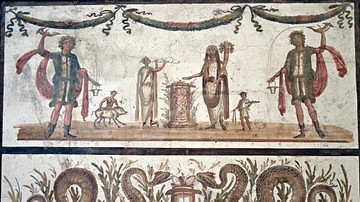
Article
Roman Household Spirits: Manes, Panes and Lares
To the ancient Romans, everything was imbued with a divine spirit (numen, plural: numina) which gave it life. Even supposedly inanimate objects like rocks and trees possessed a numen, a belief which no doubt grew out of the early religious...

Article
The Fall of Tenochtitlan
The fall of Tenochtitlan on 13 August 1521 was a decisive moment in the dramatic collapse of the Aztec empire which had dominated Mesoamerica. Led by Hernán Cortés (1485-1547), the Spanish conquistadors enjoyed superior weapons and tactics...
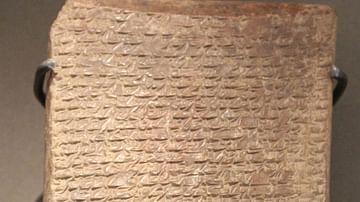
Article
Ludlul-Bel-Nemeqi
The Ludlul-Bel-Nemeqi (c. 1700 BCE) is a Sumerian and later Babylonian poem on the theme of unjust suffering, which is thought to have influenced the biblical Book of Job. Also known as The Poem of the Righteous Sufferer, the title translates...
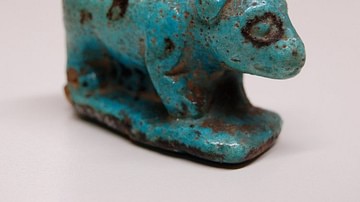
Article
Dogs in Ancient Egypt
The dog as "man's best friend" has a long history going back to the ages long before the civilization of ancient Egypt was established but the Egyptians were among the earliest people to recognize the value of the dog and show their appreciation...

Article
Making the Sacred Bundle
Making the Sacred Bundle is an origin story of the medicine bag from the Pawnee nation. A medicine bag is a pouch or bundle containing items of resonant spiritual power for an individual or the tribal community that symbolize and maintain...

Article
Zwingli's 67 Articles
Huldrych Zwingli (l. 1484-1531) wrote his 67 Articles in 1523 as a confession of faith to be presented at the First Disputation in Zürich where he defended his beliefs against accusations of heresy by the Catholic Church. Zwingli's 67 Articles...

Article
The Life of Diogenes of Sinope in Diogenes Laertius
Diogenes of Sinope (c. 404-323 BCE) was a Greek Cynic philosopher best known for holding a lantern to the faces of the citizens of Athens claiming he was searching for an honest man. He was most likely a student of the philosopher Antisthenes...
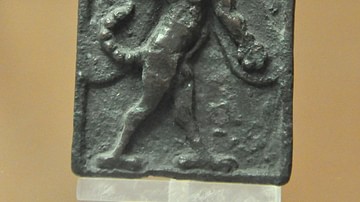
Article
Ghosts in Ancient Mesopotamia
Ghosts in ancient Mesopotamia were understood as a reality of life just as they were in other civilizations of antiquity. Although the cultures of the various Mesopotamian civilizations differed between c. 5000 BCE-651 CE, the belief in ghosts...
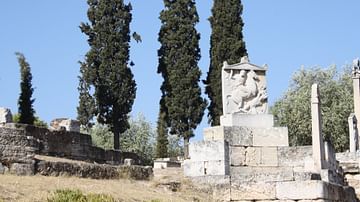
Article
The Dexileos Stele: A Study of Aristocracy and Democracy in Greek Art
The Dexileos Stele assesses the way that Athenian political thought penetrated all levels of society, showing the conflict that the aristocratic classes were faced with in trying to find their place within the Athenian Democracy. As a visual...
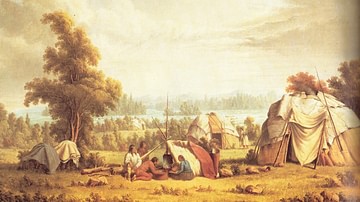
Article
Mondamin
Mondamin (also given as Mon-Daw-Min, The Gift of Corn, and The Origin of Corn) is a tale from the Ojibwe Nation on how the people received corn from the Great Spirit through the vision quest of the young man, Wunzh, and his acts of selflessness...